21 of the Most Famous Irish Proverbs or Seanfhocail
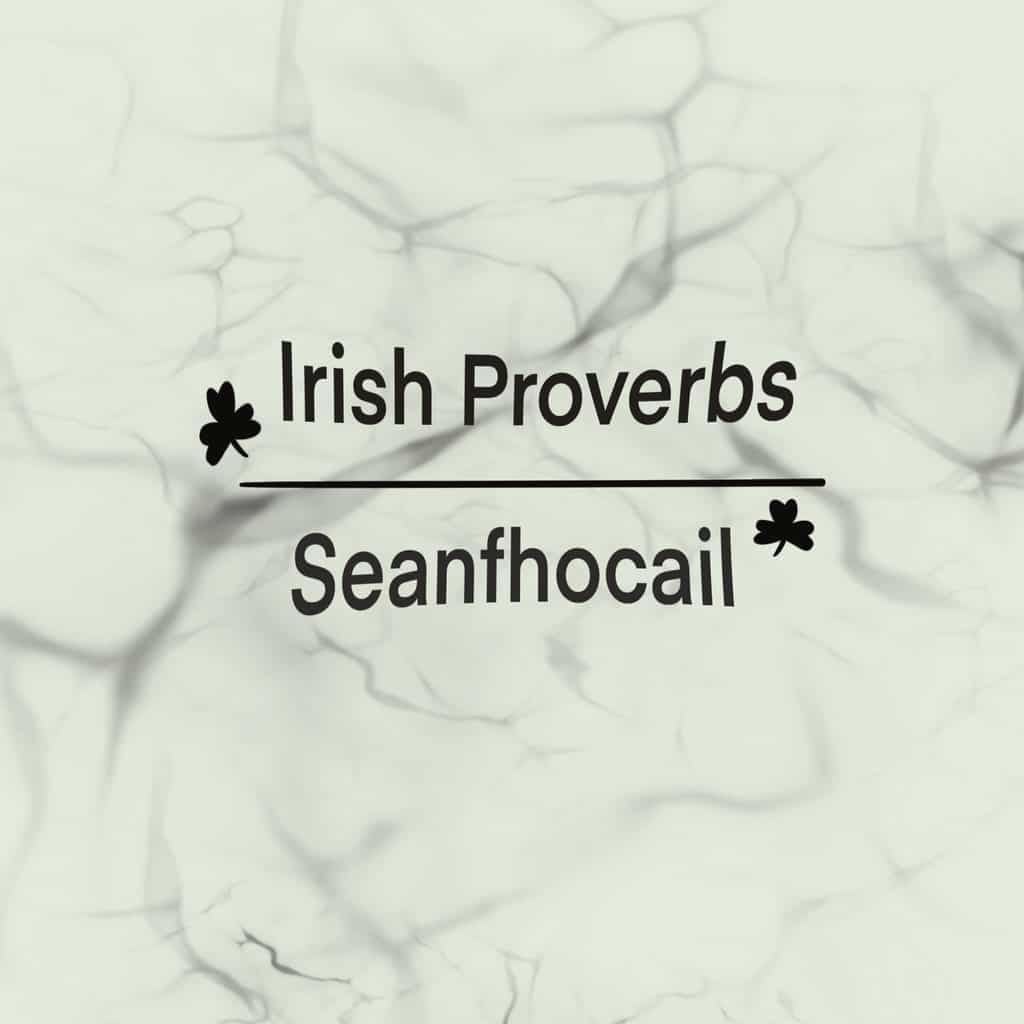
Updated On: April 24, 2024 by Asmaa Alhashimy
A proverb is a commonly known short saying accepted as accurate and repeated by the masses. It depicts a particular belief, tradition or view of life based on shared experiences.
Many Irish people grew up listening to advice from their wise parents and teachers through proverbs. They are something we say instinctively and can range from silly or humorous to genuinely thought-provoking.

For centuries, Irish culture has been admired for its wit and humour. Gaelic is our native language, and the influence of different cultures, including Scottish, Celtic, Scandinavian and Norman, have combined to create an extraordinary way of life in Ireland.
Irish proverbs represent a big part of the Irish culture, traditions, history and folklore. If you want to learn more about Irish culture, this article is perfect. We have combined some of our favourite famous and interesting Irish proverbs in one place.
Scroll down to read through the article, or click on a section link below to jump ahead!
Table of Contents
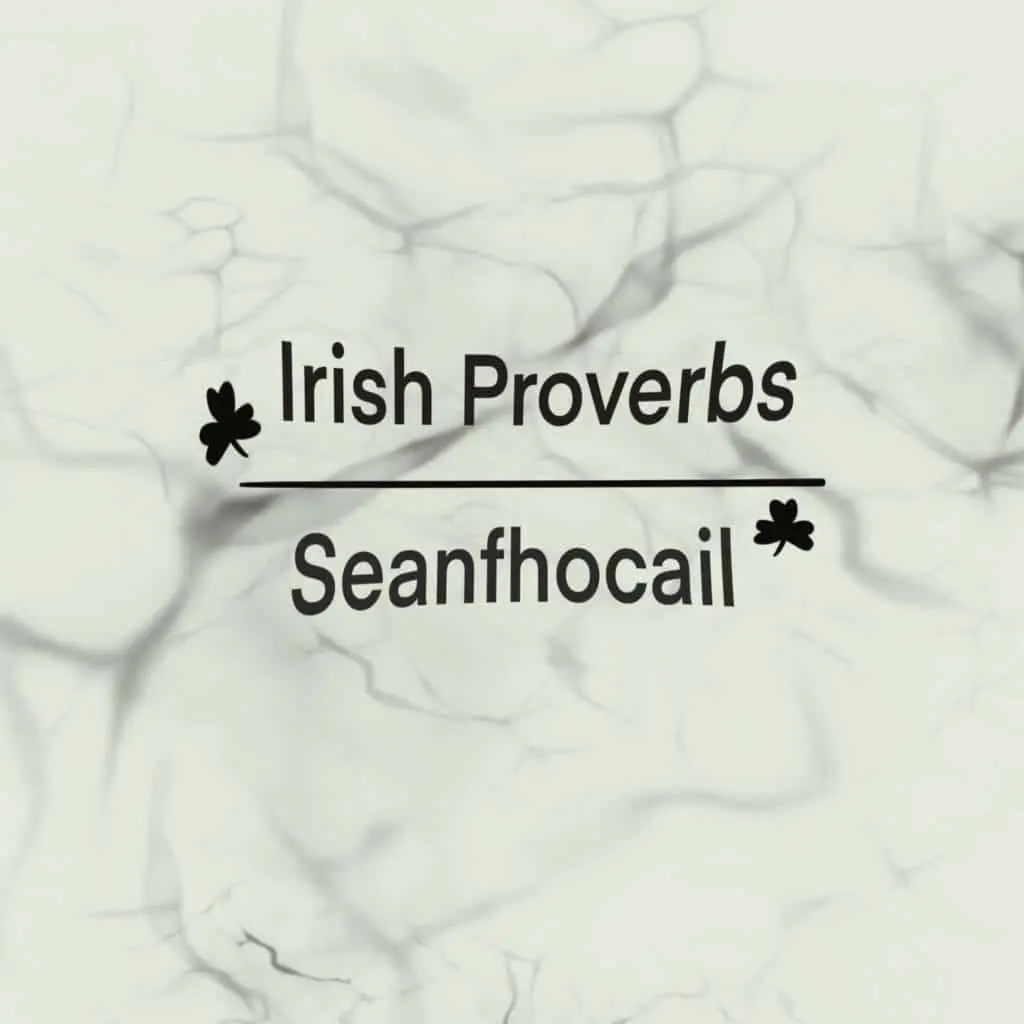
What are Irish Proverbs? (Seanfhocal)
“Seanfhocal” is the word for proverb in the Irish language. It translates to ‘old word’; fittingly, most Irish sayings have existed for hundreds of years. They were primarily known and told by word of mouth in the Gaelic (old Irish) language. As time went by, they were translated into English and written down.
Seanfhocail does not always translate perfectly into English, however. A direct translation may seem confusing or silly, so it is usually people who understand both Irish and English that can best explain what the proverb means.
Seanfhocail was initially told in Gaelic but has since migrated into English. There are many insightful and exciting Irish sayings, but some don’t make sense when translated into English. These sayings may not be easy to understand from a translation alone, so we are here to help!
12 of our Favourite Irish Proverbs / Seanfhocail
#1. Cheers! – Sláinte!
Pronounced as “slaan-sha,” Irish people commonly use Sláinte as a drinking toast, and it is our equivalent to “Cheers!” Sláinte comes from the old Gaelic word “slán, ” meaning “safe”. However, the exact meaning of sláinte is “health”, and it insinuates good health.
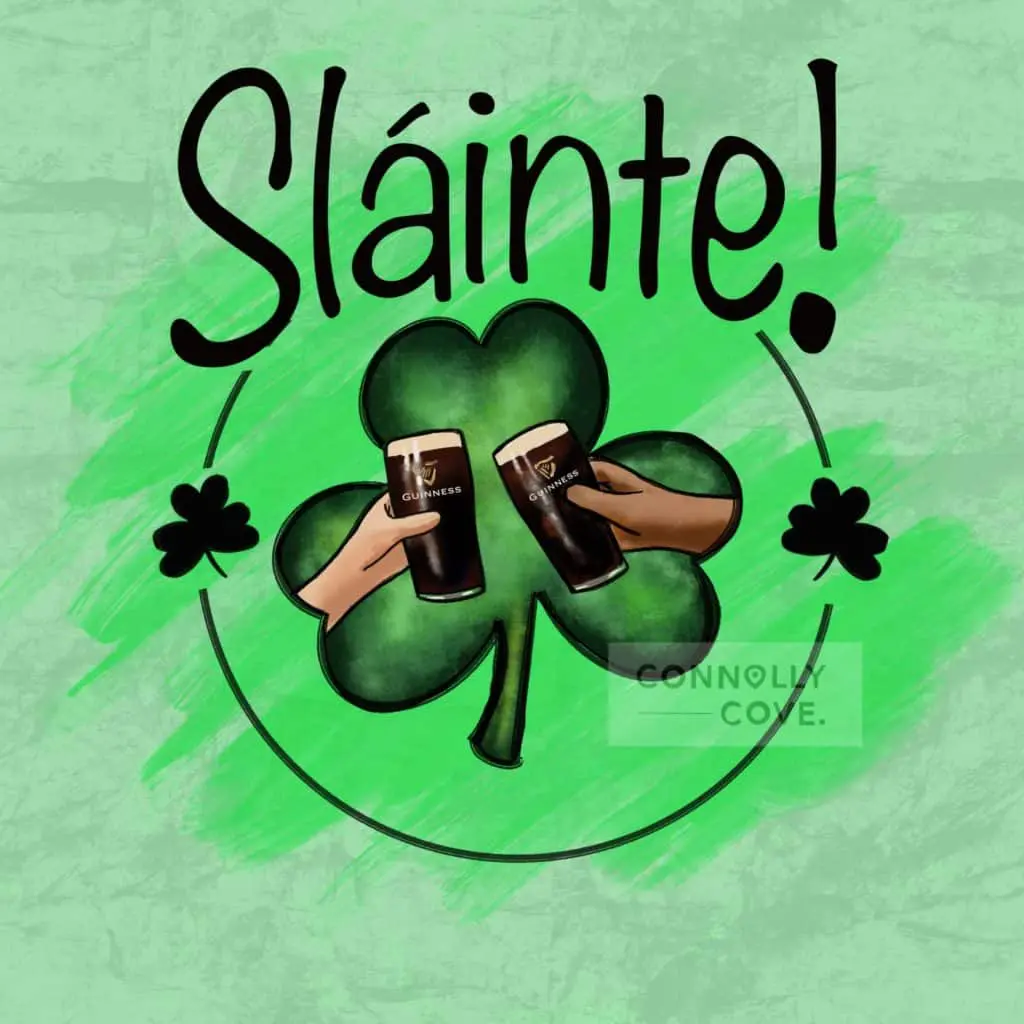
The proverb itself means, “I drink to your good health”! It is also used around Scotland and by Irish Americans in the United States.
Slán, which means ‘safe’, is also the shortened version of ‘slán abhaile’, which means ‘safe home’. Irish people often say slán when saying goodbye to each other.
#2. Your health is your wealth – Is fearr an tsláinte ná na táinte
Our following proverb seems fitting: ‘Is fear an tsláinte ná na táinte’, which means your ‘health is your wealth’. A more accurate piece of advice is hard to find. While financial success is excellent, nothing is more important than your health and well-being.
The proverb highlights the importance of recognising your priorities. This will be a recurring theme throughout the Irish proverbs we examine in this article.
#3. There’s no Hearth Like your Own Hearth – Níl aon tinteán mar do thinteán féin
The following Irish proverb on our list is “Níl aon tinteán mar do thinteán féin” in Irish, or “There is no hearth like your own hearth” in English. This is one of the most popular Irish proverbs.
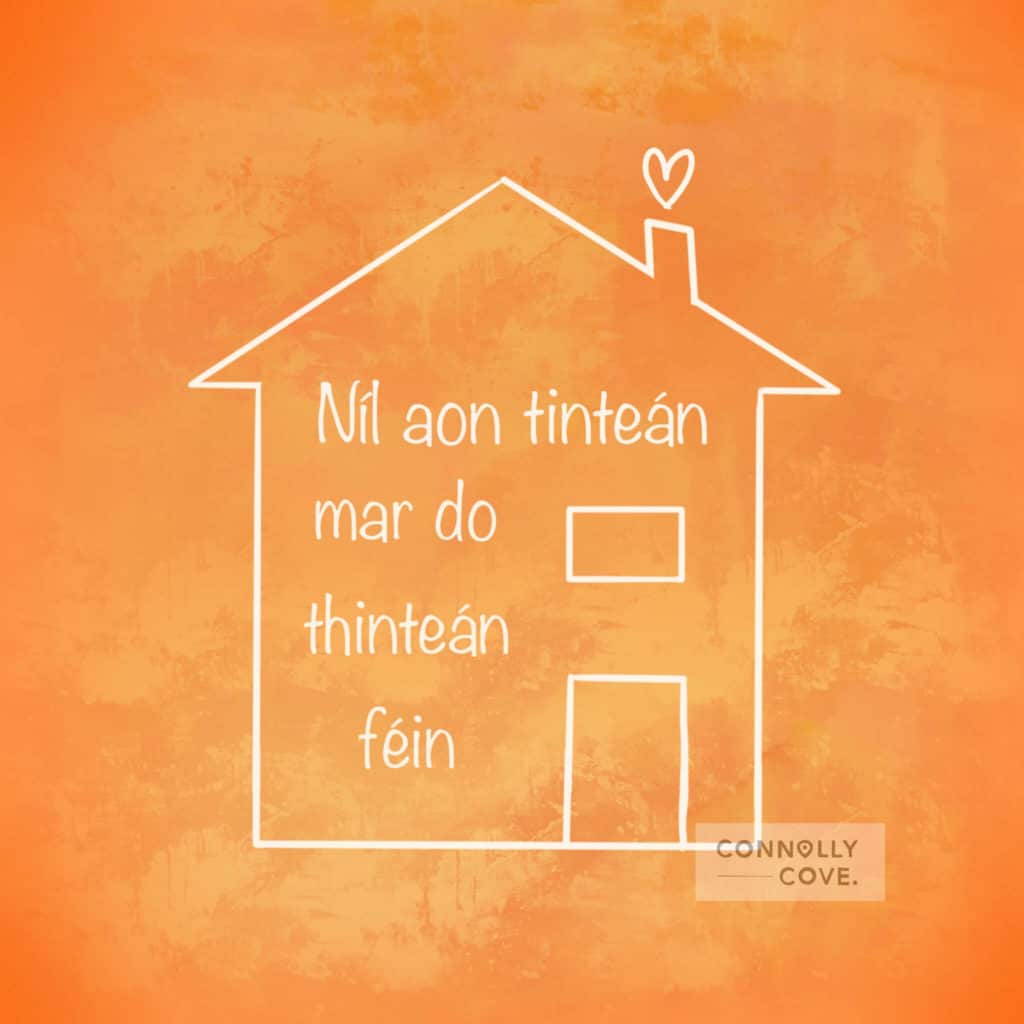
A hearth is a fireplace. Long ago, the fireplace was the centre of the home. People cooked their meals, dried their clothes and socialised around their fireplace. It was the heart and soul of the home, where family and friends gathered.
When people had few possessions and lived in tiny houses, their hearth was a source of warmth and comfort. Nothing beats the feeling of being in your own home.
This Irish proverb holds heavy meaning for many Irish people, especially considering our long history of emigration, also known as the Irish diaspora. History has seen many Irish people leave their homes with heavy hearts.
No matter where we settle, how successful we are, or how long we stay abroad, many of us yearn to return home to family, friends, and the hopes of good times. A universal experience for Irish emigrants, our desire to return home is not always possible due to economic, financial and other reasons, making this Irish proverb even more bittersweet.
The proverb focuses on the value of one’s home and our love for the place we grew up in. No matter where you go, there will never be a place as warm and welcoming as home—especially with a hearty meal and warm fire waiting for your return!
The old Irish proverb’s equivalency in English is that there is “no place like home.” There is something about Irish proverbs. They seem to hold more emotion in their native language than when translated directly.
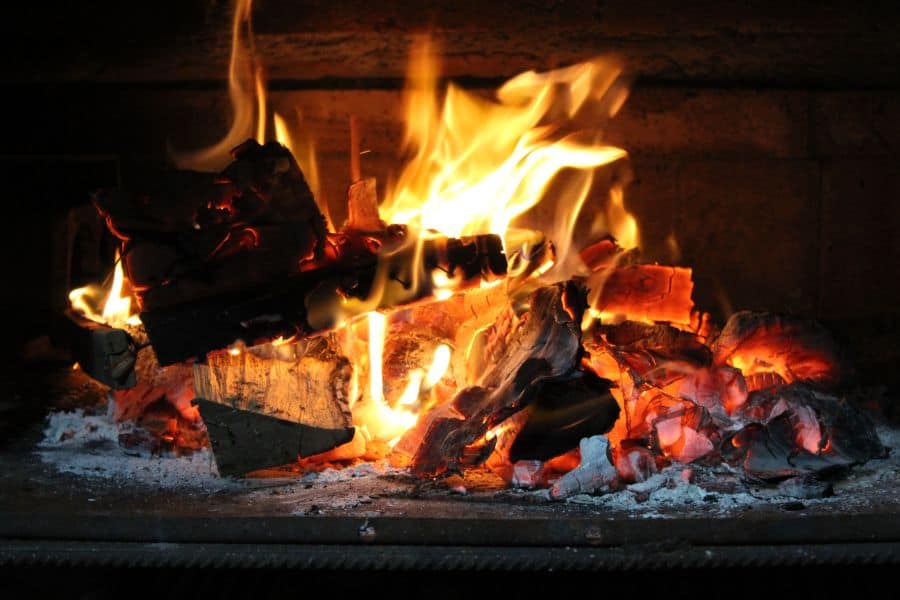
#4. Broken Irish Is Better than Clever English – Is fearr Gaeilge bhriste ná Béarla clíste
The Irish Proverb “Broken Irish is better than clever English” is spoken as “Is fearr Gaeilge bhriste ná Béarla clíste” in the Irish language. This Irish proverb aims to motivate people to learn and talk to Gaeilge, our native language and the mother tongue of their ancestors.
The Irish language is known as the Gaelic language or simply ‘Gaeilge. There are different types of Gaelic spoken in other regions and countries. Our language has a fascinating history, but unfortunately, it is no longer the primary language of Ireland.
The Emerald Isle officially speaks two languages: English, the language spoken by the majority of people in Ireland, and Irish, the native language of people living in Gaeltacht regions along the west coast.
As we mentioned earlier, Irish people cherish their heritage, and it’s easy to see this sentiment in many Irish proverbs. This proverb expresses that it’s better to attempt to speak your language and appreciate it than to disregard it simply.
The Irish language is taught in schools throughout Ireland and Northern Ireland, but many people argue that the way it is taught is outdated. This is because graduates usually leave school after nearly two decades of studying the language with a fragile ability to speak ‘as Gaeilge’ (in Irish).
A remarkable moment happened when President Obama of the United States visited Dublin College. When starting his speech, President Obama mentioned the Irish proverb before speaking in Irish. Many people were impressed that he understood the importance of the Irish language and showed his dedication to his Irish roots by attempting to talk in Gaeilge.
If you would like to learn more about the Irish language, we have an entire blog dedicated to the Gaeltacht region of Connemara. Gaeltacht regions are often popular tourist destinations as they are usually located along the picturesque west coast of Ireland and embrace all that is wonderful about Irish tradition.
#5. No strength without unity – Ní neart go cur le chéile
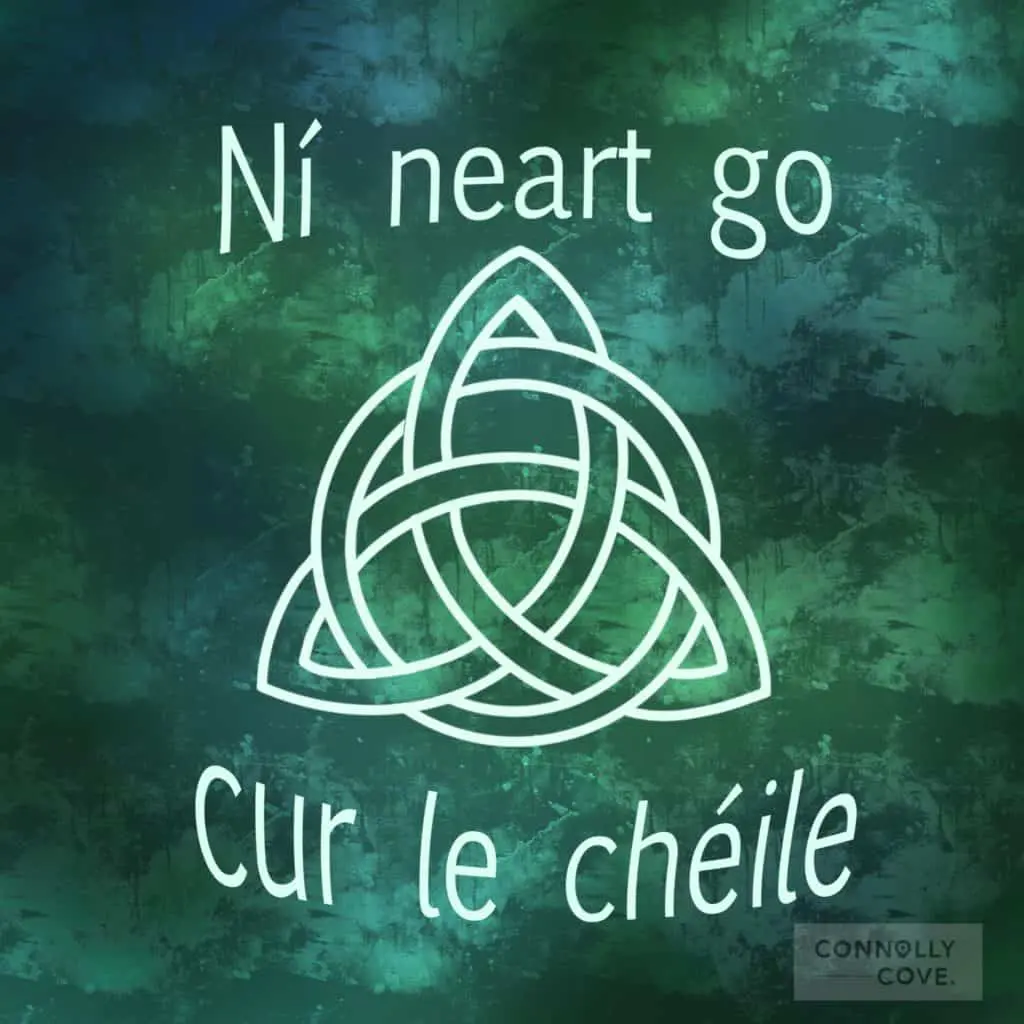
The top 5 Irish proverb on our list is ‘Ní neart go cur le chéile’, meaning English has ‘no strength without unity’.
It was one of the sayings that came to me first when writing this list, as I can vividly remember seeing the phrase on a poster every day during school. It is a proverb that is repeatedly said to classmates, sports teams and colleagues.
The importance of a community that helps each other is extensively highlighted in Ireland. From a young age, we learn that helping a neighbour in need is something we should do, not for praise, but simply because it is the right thing to do.
We tend to look after each other, especially in difficult times when it would be easier to focus on ourselves. The phrase highlights a strong community or group’s compounding effect in achieving their goals. Essentially, it is an Irish proverb about friendship and working together.
#6. You can’t make a racehorse out of a donkey – Ní dhéanfadh an saol capall rása d’asal
Up next on our list is a more humorous Irish proverb: ‘Ní dhéanfadh an saol capall rása d’asal’. This saying translates into ‘You can’t make a racehorse out of a donkey’, which can be compared to a similar phrase: ‘A leopard cannot change its spots’.
The Irish sense of humour is quite honest, as this proverb shows, but in reality, the proverb does offer a pearl of wisdom: accepting what you are is difficult. That’s not to say you shouldn’t try to change and better yourself if you want to.
You will probably find a proverb that advises the exact opposite of this one if you look for it long enough!
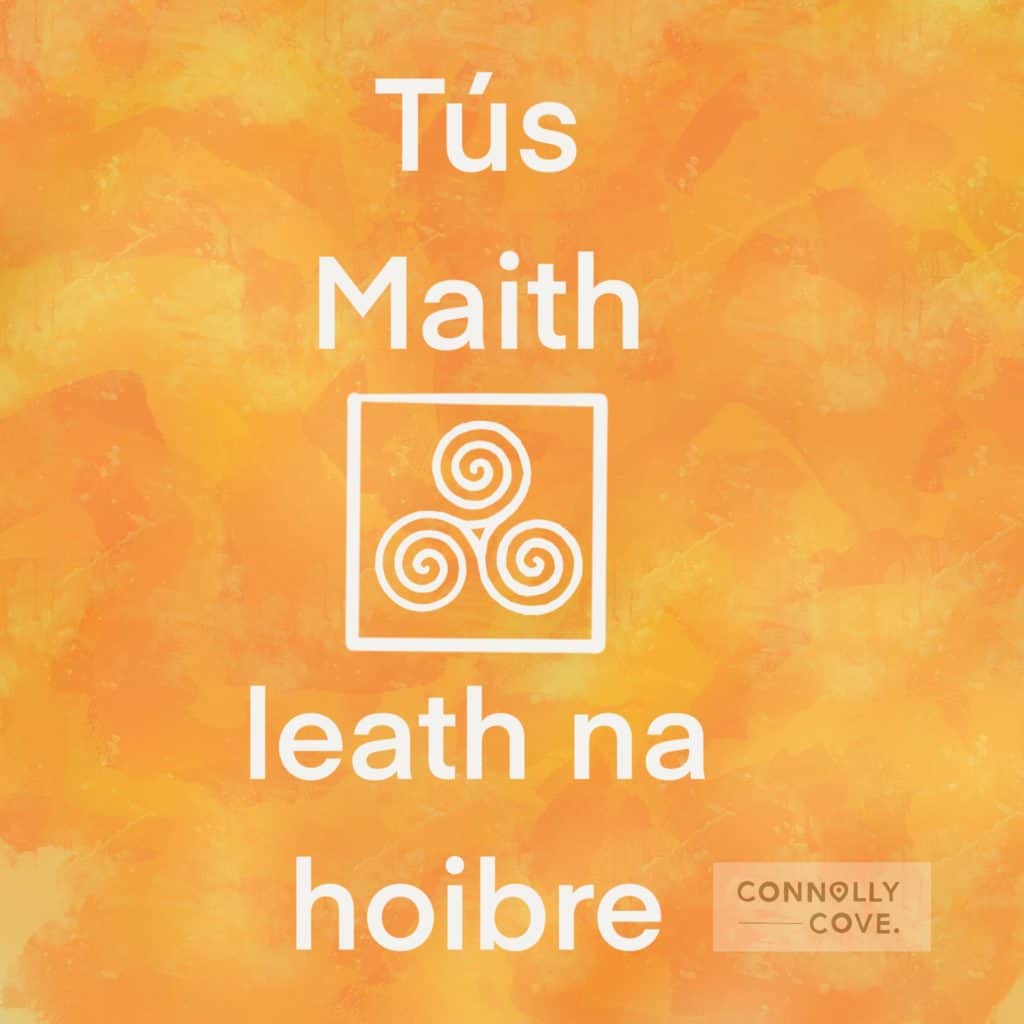
#7. A good start is half the work – Tús maith leath na hoibre
‘Tús maith leath na hoibre’, or ‘A good start is half the work/battle’, is a phrase I’ve heard repeatedly in Ireland as a motivator as I started a new job at work or was returning to school after holidays.
Another pearl of wisdom, this Irish proverb offers some good life advice. Most of us can relate to doing something half-heartedly, only to spend twice as long on it because we haven’t given it our best.
In the long run, you’ll thank yourself for trying your most challenging in the initial stages of anything in life, be it a large project or a simple task.
#8. Praise the young, and they will prosper – Mol an Óige agus tiocfaidh sí
Some parenting advice is next on our list of Irish sayings. The saying ‘Mol an Óige agus tiocfaidh sí’ translates to ‘Praise the young and they will flourish’. It is easy to criticise younger generations for their lack of knowledge and experience, but constructively praising children will allow them the freedom to grow, experiment, and learn, which will ultimately benefit them.
This is not just an Irish proverb about family, however. It can be applied to people in any walk of life. People tend to be more engaged in work, college, school, sports teams, and everything in between when we feel confident in our abilities.
If an authority figure, be it a parent, captain, teacher, or boss, is constantly unimpressed with our efforts and never takes the time to consider the good we have done, we are far more likely to become dissuaded from our responsibilities.
#9. Rare things are beautiful – An rud is annamh is iontach
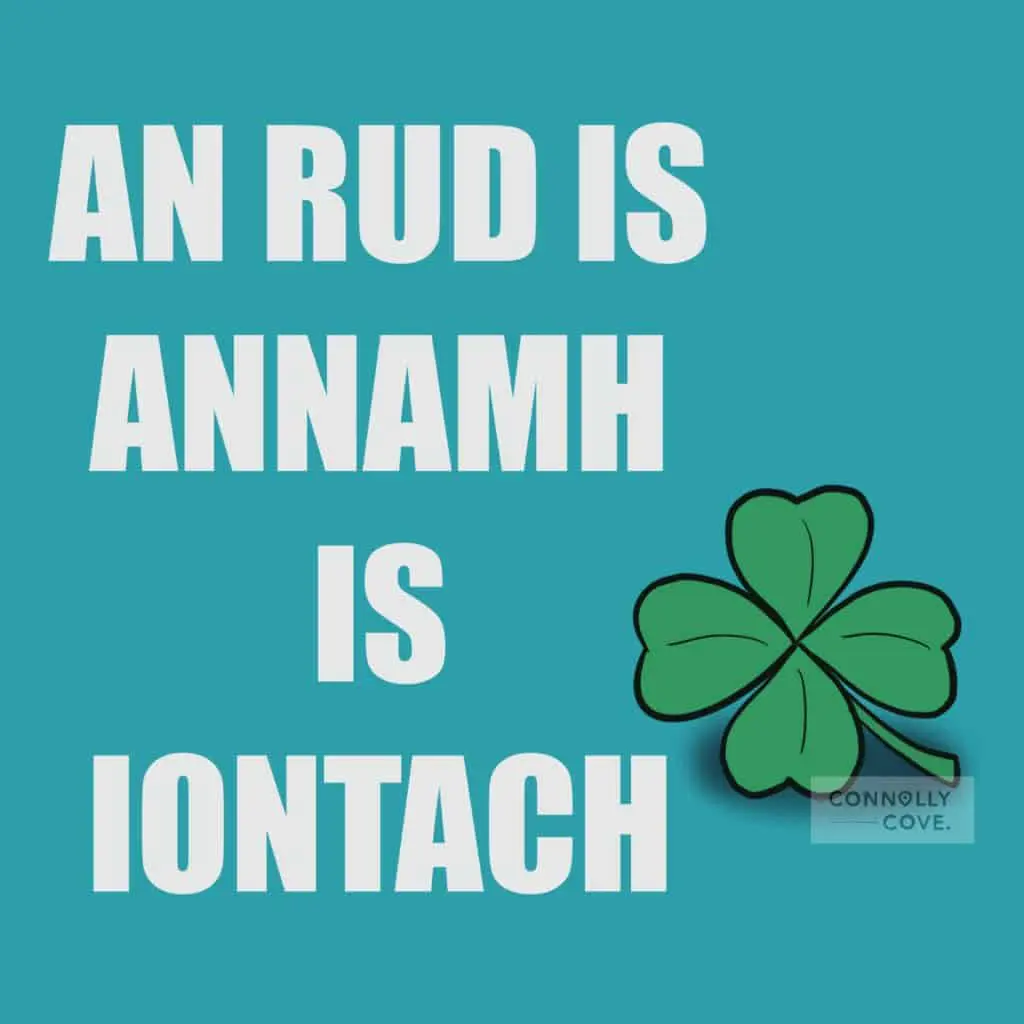
Considering that one of Ireland’s most iconic and well-known symbols is a shamrock and that a four-leaf clover is a rare find, it is no wonder that the following Irish proverb is ‘Rare things are beautiful’. In Irish, this is said with the words ‘An rud is annamh is iontach’.
This Irish proverb resembles the English phrase ‘too much of a good thing’. The two sayings highlight the importance of discipline and, likewise, enjoying the finer things in life once in a while!
#10. The well-fed cannot understand the lean – Ní thuigeann an sách an seang
Standing at number 10 on our list of great Irish proverbs is ‘Ní thuigeann an sách a seang’, a famous saying that is also quite wise. It translates to ‘the well-fed cannot understand the lean’. This saying highlights that when you are in a position of privilege, it can be difficult to truly understand what less fortunate people are experiencing as part of their reality.
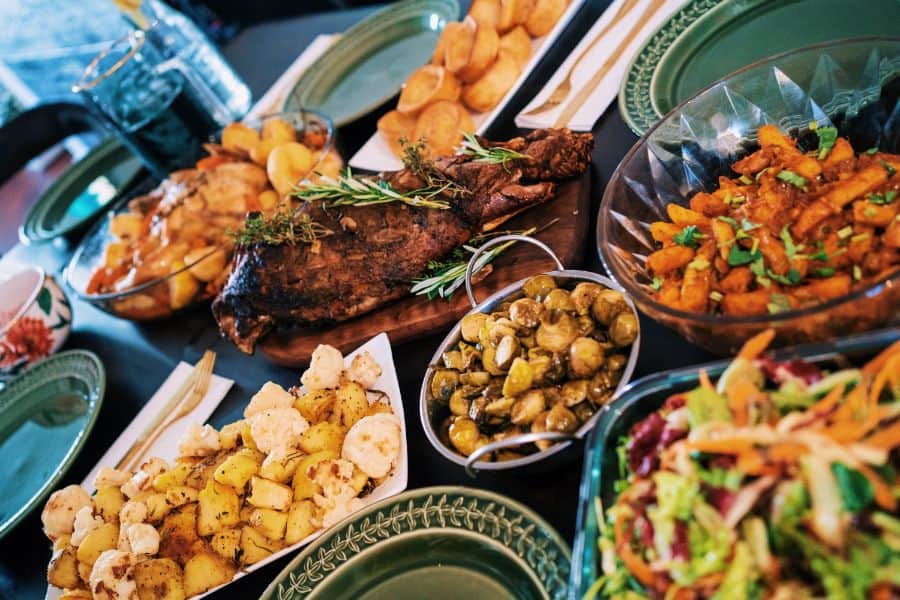
Even when we try to empathise with the less fortunate, there are some things that we will unknowingly take for granted. Learning to be humble and accepting that you have more than others can be difficult, but it can allow you to understand and relate to others more clearly.
An Irish proverb about hard times, this wisdom can also be interpreted in another way: the further the gap between people, the harder it is to understand each other. This applies to wealth and any imbalance or difference in our society.
#11. May the Cat Eat You, and May the Devil Eat the Cat – Go n-ithe an cat thú is go n-ithe an diabhal an cat
This curse is a double strike! It is written in the Gaelic language as “Go n-ithe a cat thú is gone n-ithe an diabhal a cat”, which in English means “May the cat eat you, and may the devil eat the cat”. This Irish proverb is one of the most widely-known Irish insults of the past.
The proverb is both strong and funny! When you say to someone, “May the cat eat you, and may the devil eat the cat,” you’re wishing a cat eat them, and then the Devil eats both them and the cat! So basically, you’re hoping someone suffers twice.
This phrase would not be said with malice among Irish people. More often than not, it would be said between family and friends teasing each other.
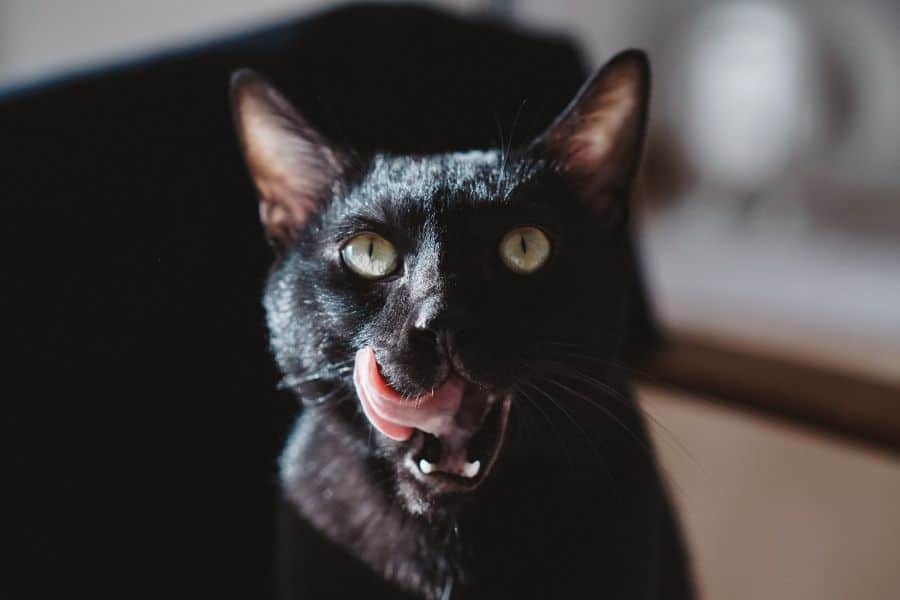
There are a lot of other funny, detailed, and inventive curses in the Irish culture, such as: “May you be afflicted with itching without the benefit of scratching,” “May you die in a town with no priest,” and “May you find the bees but not the honey.”
In Ireland, many insults are humorous and deescalate a situation rather than offending someone and making disagreements worse. We can laugh at ourselves and each other without taking the jokes we make too seriously.
Maybe that is why Irish comedians are so successful; there’s something about the Irish sense of humour!
#12. There is no wise man without fault – Ní bhíonn saoi gan locht
‘Ní bhíonn saoi gan locht’ is an Irish proverb that is as true as can be. The proverb translates to ‘There is no wise man without fault’ and recognises that even the best and most experienced of us are human. We all have our faults and are better off acknowledging them rather than pretending they don’t exist.
It also implies that if someone believes they are perfect, they are not wise! We should never stop trying to learn and improve ourselves if we want to be truly wise, and there is no point in pretending we are without flaws.
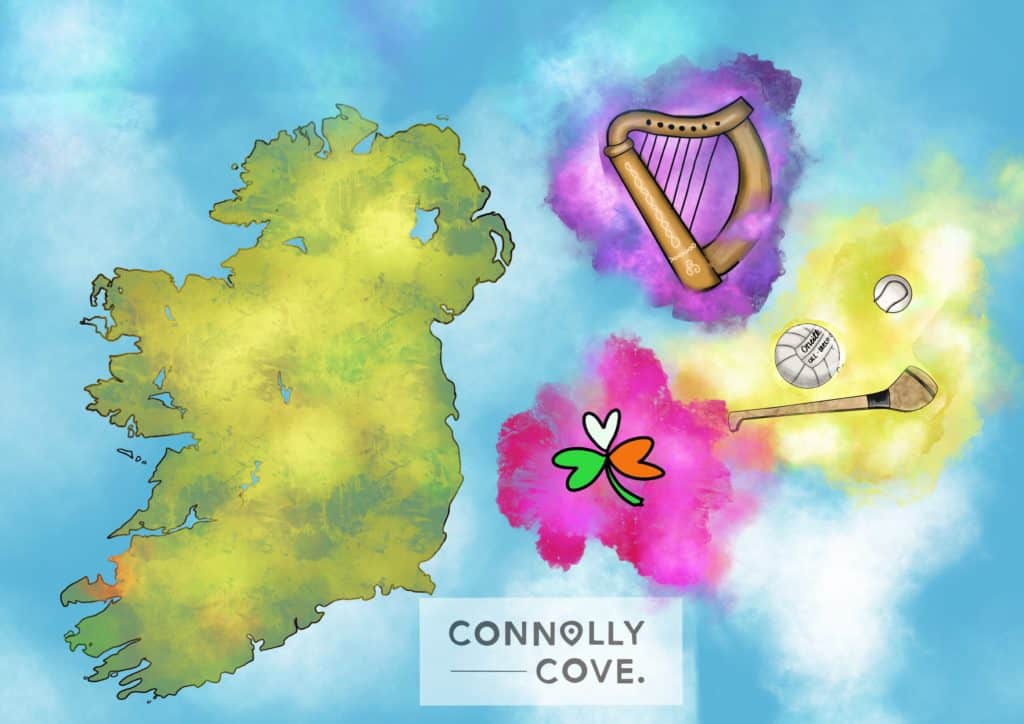
9 More Irish Sayings We Love
Here are other phrases we love. While some of these are more modern than previous Irish proverbs, they are all uniquely Irish!
#1. Nature Proverbs
There are plenty of Irish proverbs about nature. Nature has always been a famous metaphor symbol because its vastness allows it to be interpreted in many ways. The following sayings are words of encouragement to wish someone good luck or to hope that they avoid any unnecessary obstacles in life:
- May the road rise to meet you
- May the wind be at your back
- May the sun shine on your face
It is nice that we have many ways to share the same positive sentiment in the Irish language and culture!
#2. Proverbs Celebrating Irish Culture
Our life and identity are much richer when we have something to belong to. Like people from other countries, Irish people are very proud of their culture and history.
Here are two more phrases about Irish culture and luck you may like:
- If you’re lucky enough to be Irish, you’re lucky enough
- A country without a language is a country without a soul

“If you’re lucky enough to be Irish, you’re lucky enough” is one of the most famous Irish sayings you should know about. The luck of the Irish is an international moniker we have garnered over time. It is thought to refer to the many successful miners of Irish heritage during the gold rush in California.
Another common Irish proverb is “A country without a language is a country without a soul,” emphasising how Irish folks value their culture and country. It is a more sad reflection of our country than the previous proverb, as many Irish people feel their language is slowly disappearing.
Some Irish people believe we are losing a battle to preserve our native language and culture. It is a sad thought to lose such an essential part of a country’s identity and a sobering proverb.
In short, this phrase highlights how Irish people wish to preserve their native language before it dies out completely.
#3. Away with the Fairies
The Irish proverb ‘Away with the fairies’ originates in Gaelic tradition, possibly even Samhain, a festival which inspired modern-day Halloween. The expression is used when describing someone prone to daydreaming.
It also applies to a person who is often unfocused. The Irish saying also describes someone who appears not to be living in the real world.
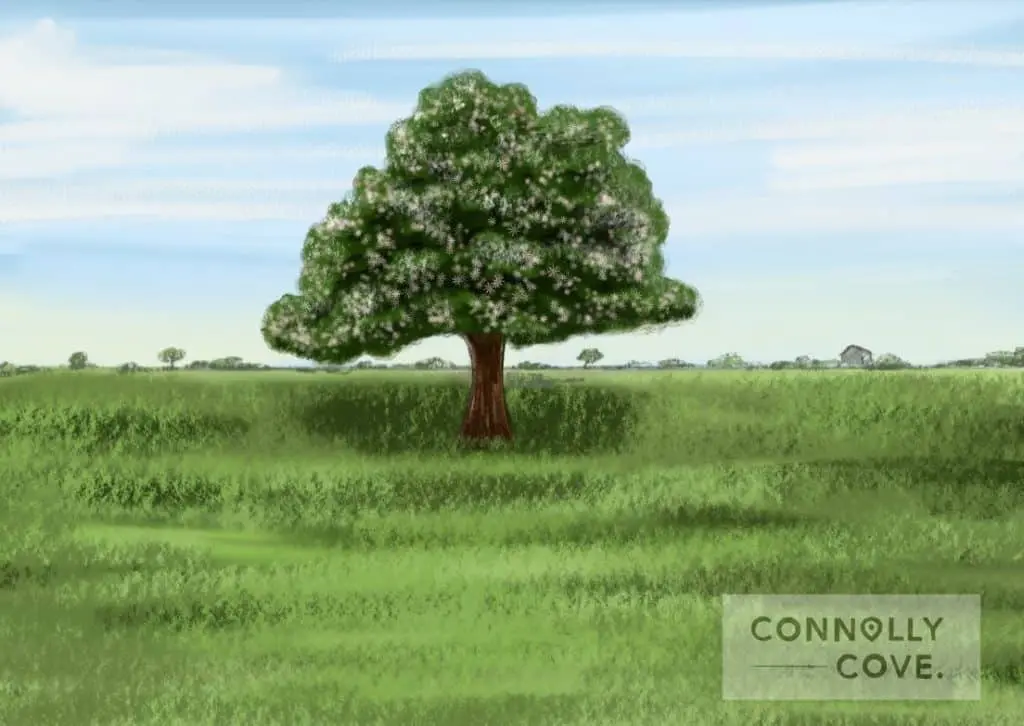
This Irish proverb goes back to Irish and Scottish Gaelic traditions, particularly our folkloric mythologies. While not necessarily a compliment, it is more akin to the English phrase ‘head in the clouds’ than an insult. Nevertheless, it is not something you would say to praise someone.
The wording may seem peculiar, but Ireland has a solid connection to fairies. We have many ‘fairy trees’ scattered around the country. These trees are usually found standing alone in the middle of a field.
In the past, people believed it was bad luck to disturb the trees as fairies inhabited them. Some Irish people would even take a more extended route home to avoid passing the fairy trees at night! If you would like to read more about Ireland’s rich history of fairies, check out our blog on the superstitious fairy trees of Ireland.
#4. Two People Shorten the Road
Good company makes any journey more tolerable, and that is what this Irish proverb is all about.
The Irish proverb “Two people shorten the road” expresses the importance of having a good companion in your life. Moreover, it describes that companionship always makes a journey pass by quickly. When you are with the right people, time seems to move by faster.
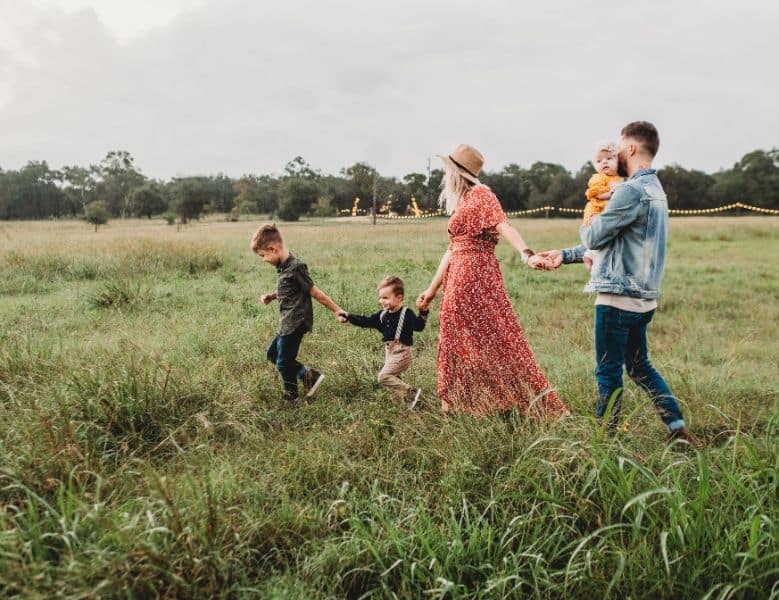
This lesson is presented in a famous tale in Celtic folklore. The story follows a father travelling with his son and daughter-in-law. The father asks his son to “shorten their journey”. The son didn’t know how to do such a thing until his wife told him that the way to shorten a journey was by telling stories along the way.
The story’s moral is that choosing the right companion is essential; a true comrade makes life’s bitterness more tolerable and the journey better.
Ireland has a rich history of storytelling. It used to be one of the favourite pastimes of many folks when there was little to no entertainment available. Storytelling passed the time on long winter evenings.
A seanchai was a traditional Irish storyteller and historian. The whole village would gather in a house and listen to the seanchai, a professional storyteller.
Storytelling and the arts have always been valued entertainment in Ireland. They were a measure of wit and intelligence, and even Ireland’s ancient Celtic deities and legendary hero warriors were expert poets and musicians.
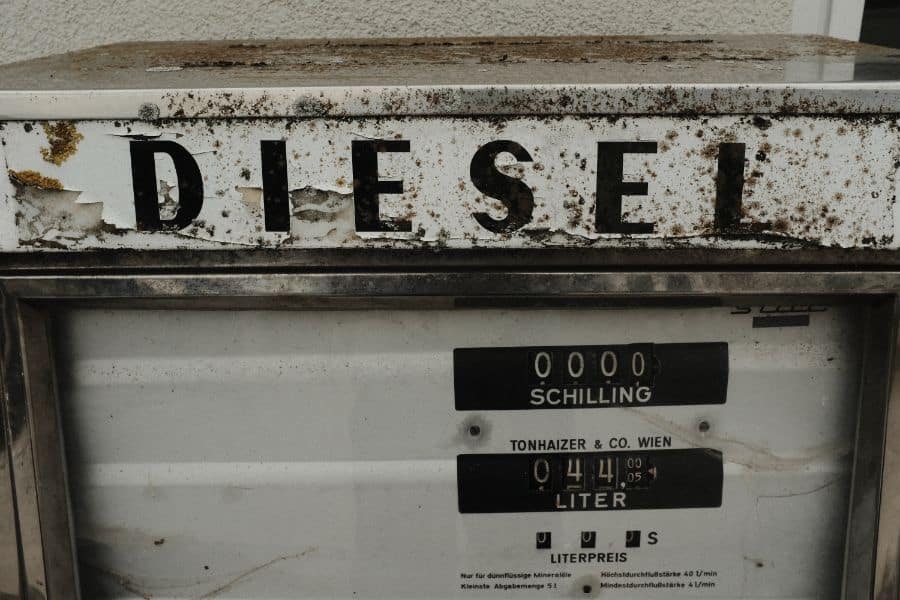
#5. Sucking Diesel
A car needs fuel to move forward smoothly and without problems. To be more precise, it needs to be “sucking diesel” to move forward. This is where the following Irish proverb comes from.
When a person’s day is going well, the perfect expression to indicate their good fortune is by saying they’re sucking diesel. So, next time when someone asks you how you are doing, and you want to tell them that things are going well, simply say “I’m sucking diesel”!
#6. Far Away Cows Have Long Horns
You’ve likely heard the expression “The grass is always greener on the other side of the fence” or maybe “Far away hills are greener” at some point in your life. The Irish proverb describes the same meaning: “Far away cows have long horns”.
People – most of us anyway – are never satisfied with their own lives. It is natural to believe that the things we don’t have will make us happier. We tend to see other people’s jobs, houses and lives as better or more fulfilling.
This has only been exemplified by social media, as we are shown a constant highlight reel of other people’s lives. Nevertheless, just because something seems excellent doesn’t mean it is. Learning to focus on what you have will make you happier in the long run, which, fittingly enough, brings us to the following idiom.
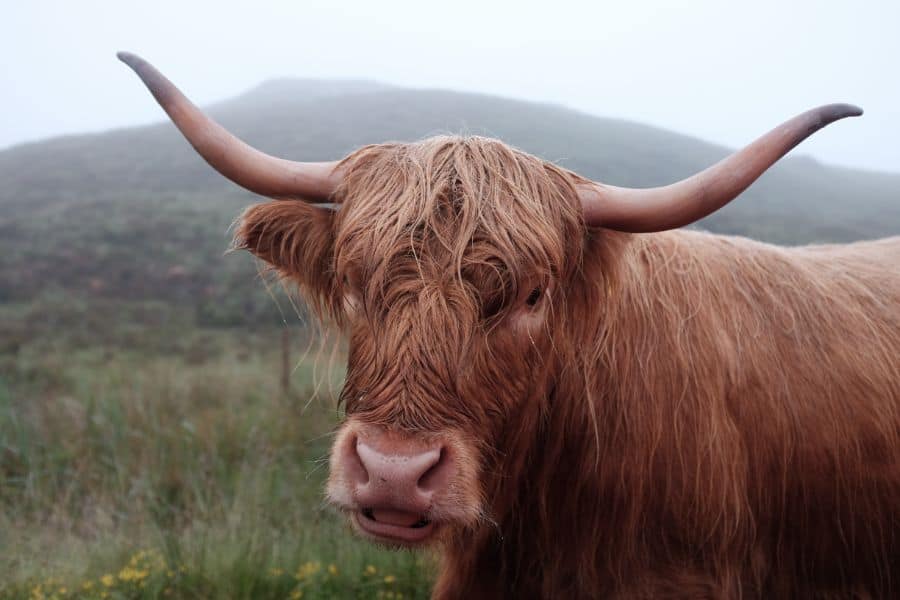
#7. Complain that You Have No Shoes Until You Meet a Man Who Has No Feet
“Complain that you have no shoes until you meet someone who has no feet” is another Irish proverb highlighting that we aren’t always satisfied with what we have. It also showcases just how critical perspective is.
A person might keep complaining about their situation and comparing their life to people with more money or power than them, thinking they are happier. The truth is, many people would envy what you have if you are young, healthy or have a good family and a few friends.
We all have our desires and struggles. Learning to appreciate the things we have rather than chasing the things we don’t can drastically improve our outlook on life. We should remain motivated and strive for things in life, but as many Irish proverbs on this list say, life is all about balance.
#8. Suffering from a Double-Dose of Original Sin
Remember humanity’s original sin? The famous story of Adam and Eve is referenced when someone is a bit of a troublemaker.
The Irish proverb “Suffering from a double dose of original sin” became common during the 1880s. It’s not as commonly heard today, but it is quite an exciting way to describe someone.
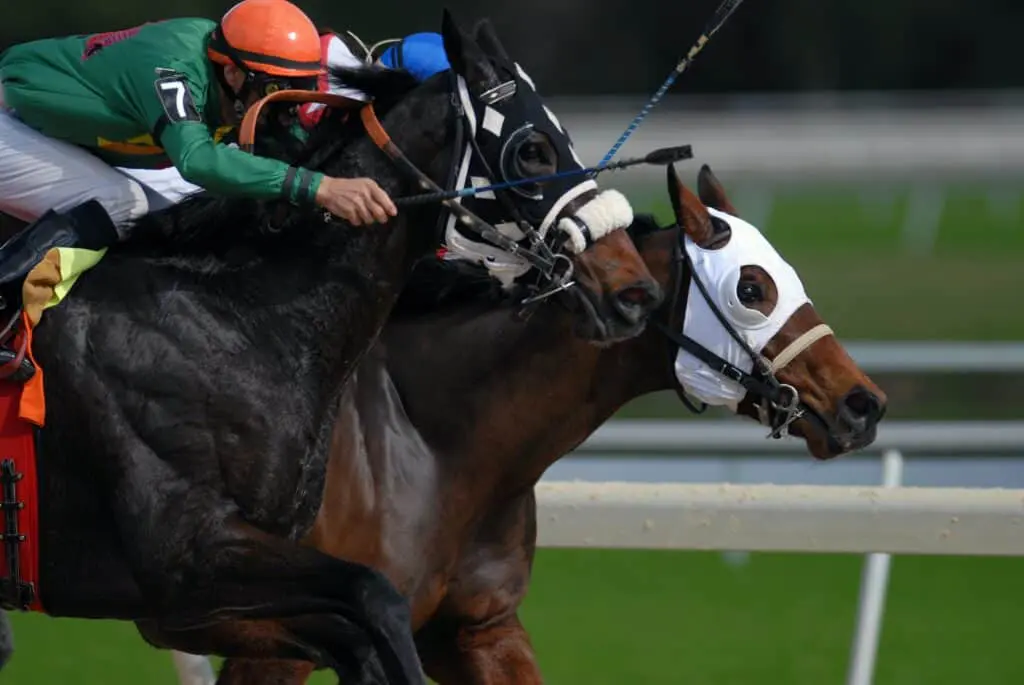
#9. On My Tod
The Irish proverb ‘On my Tod’ is an excellent example of the Cockney rhyming slang that spread around the UK, Australia, and Ireland in the 19th century. The origin of the proverb is the phrase “On my Tod Sloan,” which rhymes with “on my own”.
Tod Sloan was an American jockey whose mother died when he was young. After this, his father also left him. Tod became a successful jockey and got there entirely on his own.
His career ended when he moved to the UK, where he would go on to live the rest of his days alone with little money. Thus, when someone says, “I’m on my Tod”, it means ‘I’m on my own’, ‘alone’, or even ‘I’m going out alone tonight’.
If you want to know more about a country, one of the best things to do is to dig deeper into its folklore or traditions. What people believe in, their customs and what they value can be very telling. All of these things contribute to the formation of a civilisation.
Ireland is one of the most famous countries for its culture and history. For instance, the more you read about celebrated Irish sayings, the more opportunity you have to be introduced to many interesting facts about Ireland.

There are Many Great Irish Proverbs to Learn About
Irish proverbs are a rich and timeless treasure trove of wisdom, humour, and cultural insight. These succinct and often poetic expressions have been passed down through generations, shaping how the Irish people perceive and navigate life.
They reflect the values, beliefs, and experiences of a nation with a long and storied history, offering a glimpse into the resilience, wit, and deep connection to nature that characterises Irish culture.
Irish proverbs teach us the importance of community, the power of storytelling, and the enduring bond between the Irish people and their land. They remind us to appreciate life’s simple pleasures, to face adversity with humour and determination, and to never lose sight of our roots and heritage.
In a rapidly changing world, Irish proverbs remain a source of comfort and guidance, offering solace in times of uncertainty and a connection to the past that grounds us in the present. They are a testament to the enduring power of language and culture and enrich our lives with their timeless wisdom.
As we delve into the world of Irish proverbs, we discover a deep appreciation for Ireland’s cultural heritage and a profound understanding of the universal truths that unite us all.
Have you heard of any Irish saying that we haven’t mentioned? What is your favourite among these Irish Proverbs? We would love you to share them with us 🙂
Also, don’t forget to check out some related blogs around Northern Ireland and Ireland: Delightful Irish Dishes| Danny Boy Song| Famous Irish Who Made History in Their Lifetime| Digging into The Secrets of Irish Pookas| The Globally Celebrated St. Patrick Day| Irish Wedding Traditions|


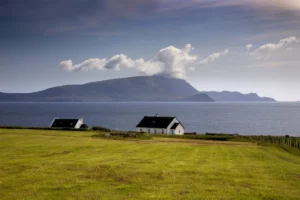


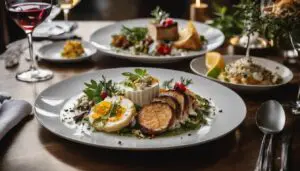

Good article but one little point.
“No neart go cur le cheile” translates as “no strength without unity” and not “there’s strength in unity”. I’m not nitpicking but for anybody who may be trying to learn the language and the grammar it is best to use the most direct translation to make it easier to understand the context.
Slainte.